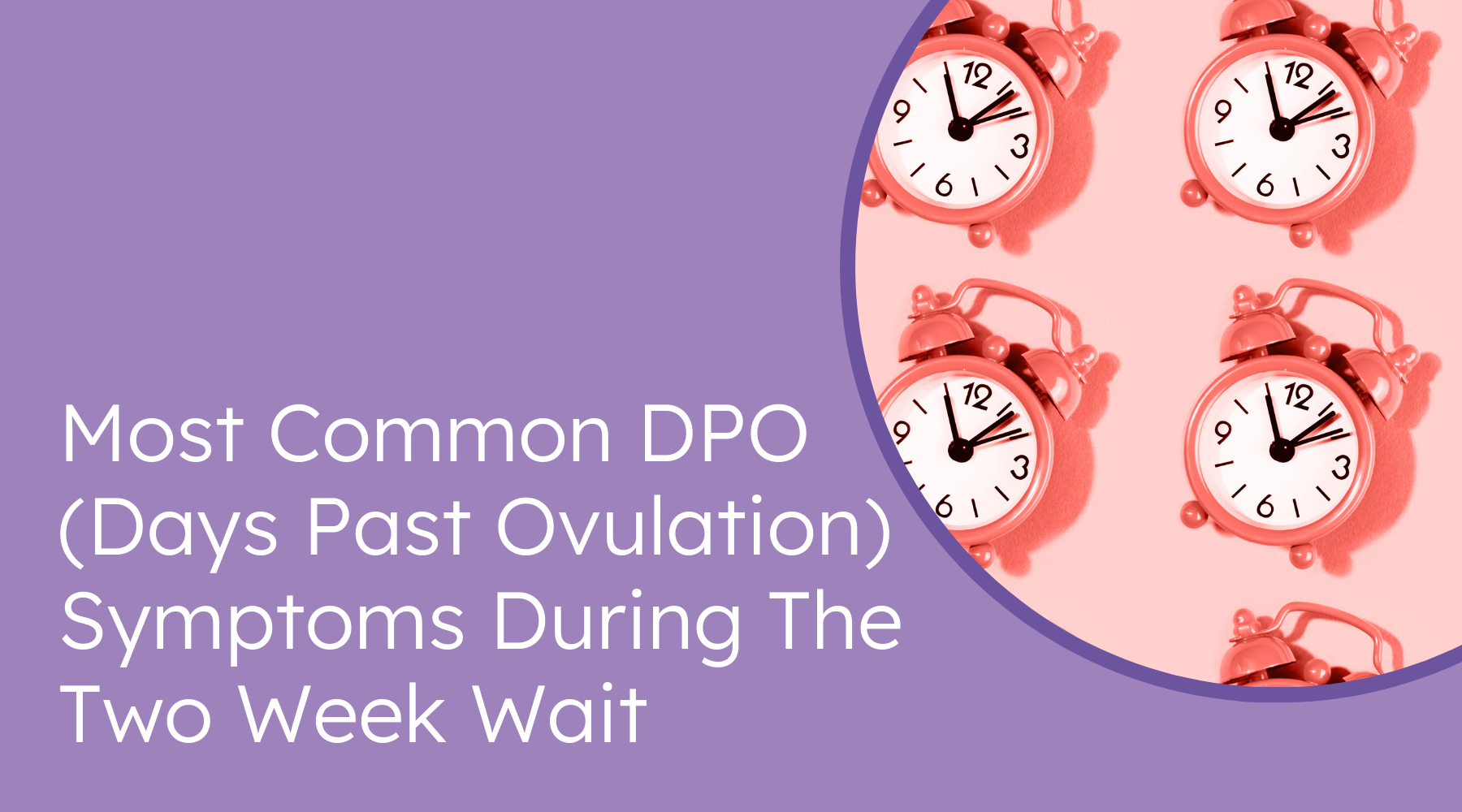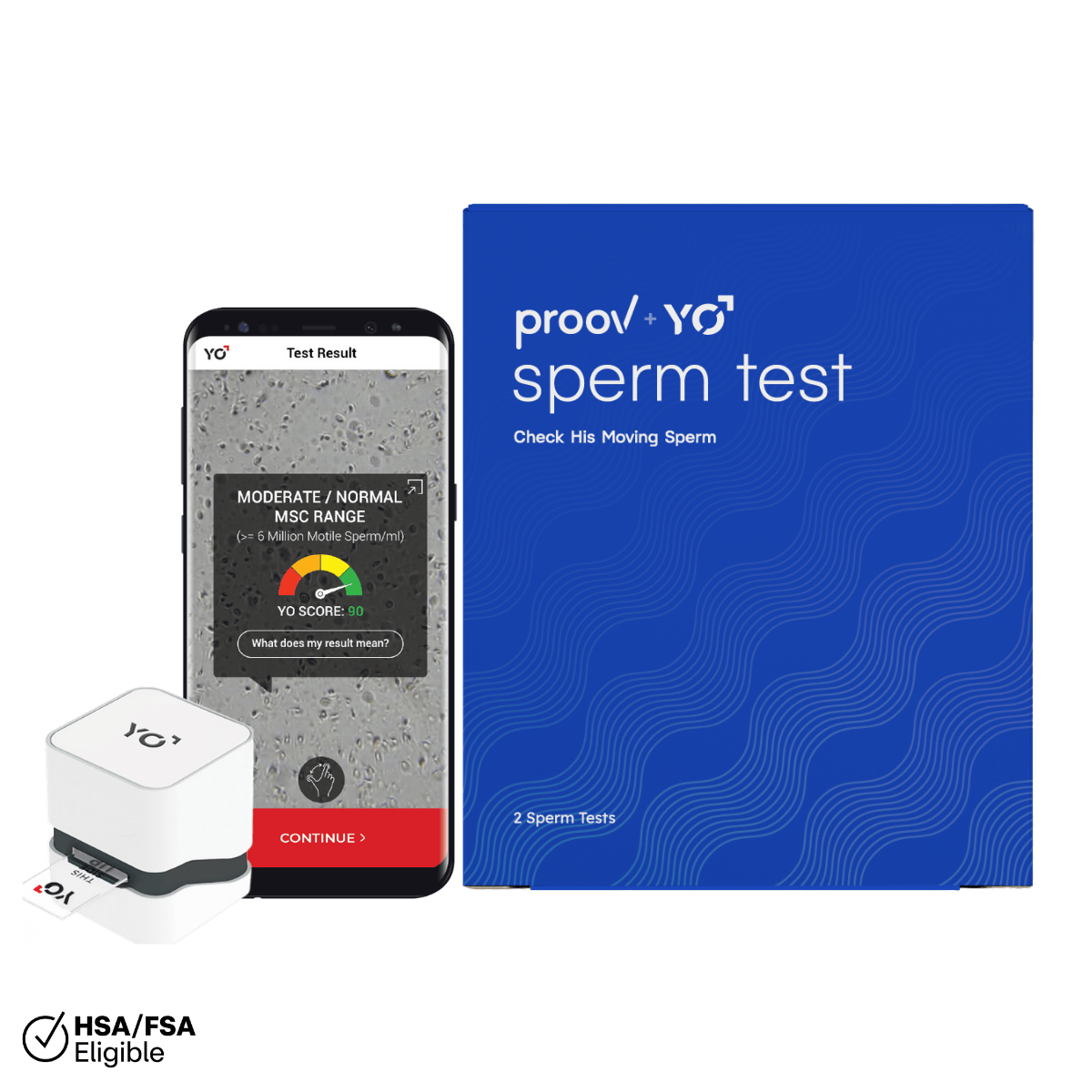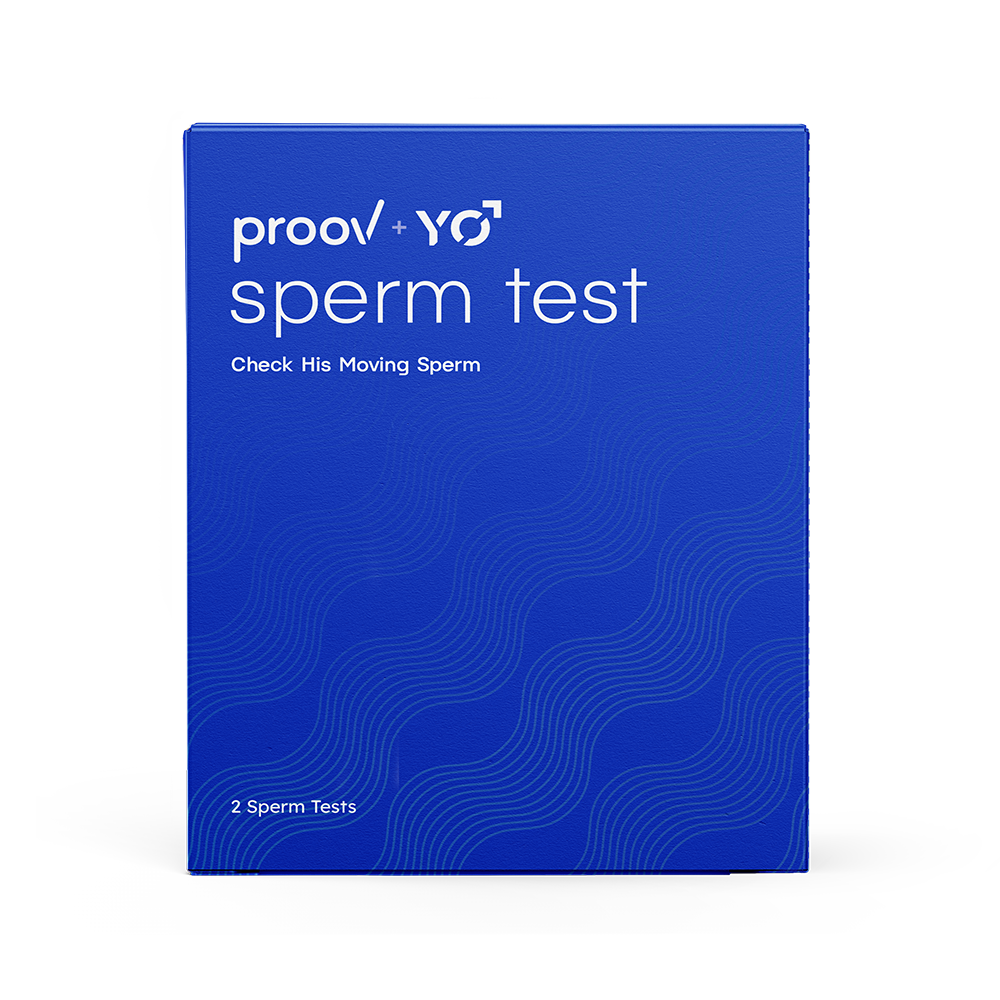When you’re ready to grow your family through pregnancy, one of the hardest parts can be waiting the two weeks between ovulation and pregnancy testing! Many are eager to understand how to know if they’re pregnant before it’s time to take a pregnancy test.
Let’s explore some of the most common symptoms you may experience during that time, and maybe you’ll know before the test turns positive!
What is the TWW in early pregnancy?
The main event of any menstrual cycle is ovulation, when the egg leaves the ovary and has the potential to be fertilized by a waiting sperm. Fertilization and conception are the first steps on the egg’s journey to pregnancy.
But you won't know whether or not you’re pregnant just yet. There’s still a lot that has to happen before those two pink lines show up on a pregnancy test.
The time between ovulation and when you can take a pregnancy test is called the “two week wait” (or TWW) by those in the trying to conceive community. That’s because it takes roughly two weeks after ovulation for a newly formed embryo to travel to the uterus, implant, and produce enough pregnancy hormone to show up on a pregnancy test.
Now, let’s get to the symptoms!
Common Early Pregnancy Symptoms
Because these 2 weeks can feel like an eternity to those waiting to see if they are pregnant, many start looking for early pregnancy symptoms that may give them a clue!
It’s important to note that many common early pregnancy symptoms can also be symptoms for other things. But, that doesn’t mean it’s not still fun to keep track of changes you may experience before you can test!
Symptoms You Might Experience 1-6 Days Past Ovulation (DPO)
This early after ovulation, it’s unlikely you’ll have many (if any) pregnancy symptoms. Some say that they “just know” as early as ovulation, but many prefer more than just a hunch. That’s where early symptoms come in!
Implantation usually occurs 6-10 days past ovulation, so it’s possible you could experience implantation bleeding toward the end of this time. Implantation bleeding is usually a small amount of blood that occurs when the tiny embryo burrows into the lining of the uterus. This process is called implantation and it’s an important step in a healthy pregnancy.
Symptoms You Might Experience 7-11 Days Past Ovulation (DPO)
If implantation hasn’t already happened, now is the time! As the embryo burrows into the lining, hormonal reactions begin in the uterus, brain, and throughout the body. These changes can lead to the very first pregnancy symptoms.

You might notice increased fatigue, headaches, breasts that are tender or swelling, or sore nipples. Some symptoms may be so mild that you’re unsure if they “count,” but if it’s related to pregnancy, they will increase in the days and weeks to come.
Symptoms You Might Experience 12-14 Days Past Ovulation (DPO)
You are so close to the end of your two week wait! You may be tempted to begin taking pregnancy tests at this point. If implantation happened later than usual, though, it could still be too early to get a positive result.

It’s possible that, even though it’s too early to get a positive pregnancy test, you may experience an increase in pregnancy symptoms! You may experience an increase in symptoms like fatigue and breast tenderness, and may notice new symptoms like:
- Food cravings or aversions
- Nausea, with or without vomiting
- Increased urination
- Mood swings or feeling more tearful than usual
It’s around this time that you may experience the most common early pregnancy symptom: a missed menstrual period! If that happens, it’s time to take a pregnancy test. If you’ve missed your period, the results should be fairly accurate and you don’t have to worry as much about false negatives.
Symptoms After Ovulation if You’re Not Pregnant
If you’re not pregnant, it’s possible you could still experience a few of the mentioned symptoms. For instance, it’s common to experience mood swings (including tearfulness and irritability), fatigue, headaches, and breast tenderness before your period begins.
Other Possible Causes
This is because the hormone that is generated after ovulation (progesterone) is the same one responsible for supporting an early pregnancy. Progesterone variation can cause accompanying symptoms that are common with PMS.
Other things can cause faux pregnancy symptoms, as well, like a new workout routine, stress, changes to your birth control, illness, or a hormonal imbalance.
The Science of What’s Happening in Your Body
Ovulation occurs when an egg leaves the ovary for possible fertilization. If it’s not fertilized, it dissolves within 24 hours. But when intercourse occurs around ovulation, there may be waiting sperm that unite with the egg. This is called fertilization.
From this moment on, the cells begin dividing and something new is created. It’s a high energy task (hello, fatigue!) and all of it is happening as the embryo travels to the lining of the uterus. Fertilization is critical, but the next big milestone is implantation.
The embryo needs a strong, supportive, nutrient-rich uterine lining in which to burrow down and implant. Wherever implantation occurs is where the placenta will develop and remain for the remainder of the pregnancy. This is also when the rest of the body realizes that something different is going on!
The growing embryo begins to produce a pregnancy hormone called hCG, which signals increased hormone production, increased blood flow, and other whole body changes necessary for pregnancy support.
How to Test for Pregnancy at Home
It’s also this hormone that a pregnancy test uses to let you know if you’re pregnant! Different pregnancy tests pick up different levels of this hormone, but some tests, like our Proov Check Pregnancy Test, are designed to pick up the hCG hormone up to 5 days before your missed period.

Once you’re at that point, congratulations – you’ve made it through the two week wait!
Uncertain when or whether or not you’re ovulating? Check out our other at-home hormone tests to help you successfully predict and confirm ovulation!












